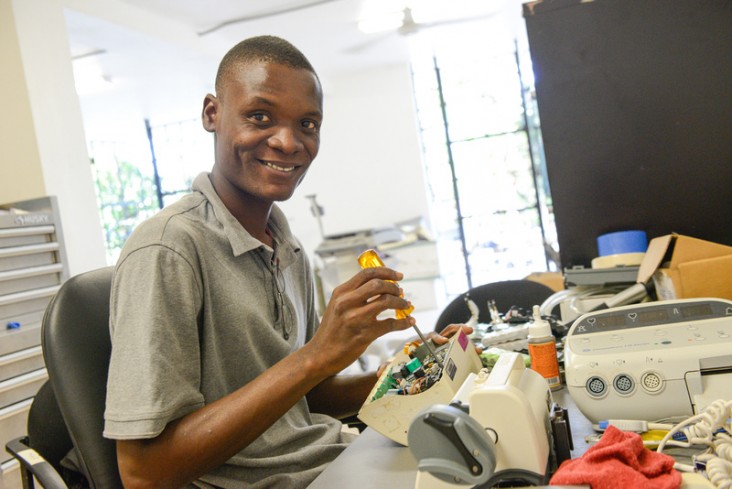
REPARE Project will launch a certification program for Haitian Technicians
For Immediate Release
Addressing a critical need for the healthcare of Haitians, USAID, the W.K. Kellogg Foundation, the General Electric (GE) Foundation, and St. Boniface Haitian Foundation signed a partnership to train Haitian biomedical engineering technicians to fix and maintain life-saving equipment through Reparation Pou Amelyore Ekipman Medikal, or the REPARE project. Partners in Health/Zanmi Lasante and the Ministry of Health will participate in the program.
Nonfunctioning biomedical equipment, such as anesthesia machines for surgeries and incubators for newborns, presents major challenges for medical professionals and devastating consequences for patients. A 2010 study of seven hospitals in Haiti found that out of 115 pieces of biomedical equipment— 70% of them were not in use and most could have been repaired. Outsourcing equipment repair is expensive and time-consuming.
The partnership is a sustainable solution that generates income through fees for repairing and servicing equipment. The GE Foundation provided equipment, parts, and maintenance kits as well as technical guidance adapted to Haitian operations. Kellogg Foundation conducts the training and USAID provides funding to St. Boniface Hospital, a regional medical facility that serves 300,000 people in the south of Haiti, where the training takes place in a fully-equipped workshop space.
“REPARE convenes the expertise and financial support of important actors in Haiti's healthcare system to ensure Haitians of all incomes receive the benefits of life-saving biomedical equipment,” said United States Ambassador to Haiti Peter Mulrean. “The long-term objective is to create an efficient maintenance and repair system that is self-sustaining through fees for services provided by an expanded pool of certified Haitian technicians.”
After three years 12 trainees will be tested according to certification standards of the Association for the Advancement of Medical Instrumentation. Additionally, hospital administrators and clinicians will receive training in biomedical equipment management.
See Also
REPARE Project Fact Sheet [PDF, 238K]
Speech by Ambassador Peter Mulrean at REPARE Project Launch [ENGLISH]
Speech by Ambassador Peter Mulrean at REPARE Project Launch [FRENCH]







Comment
Make a general inquiry or suggest an improvement.